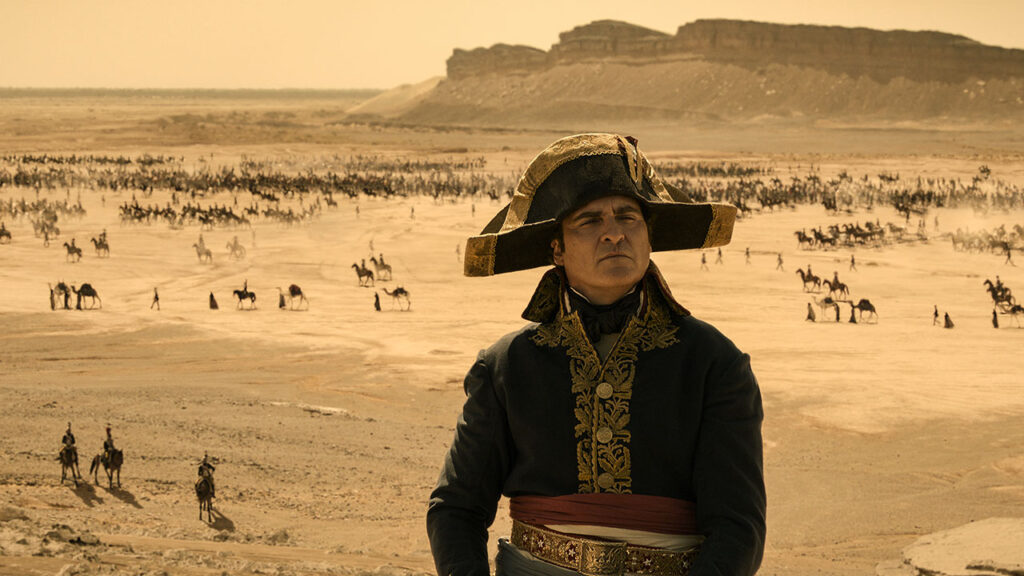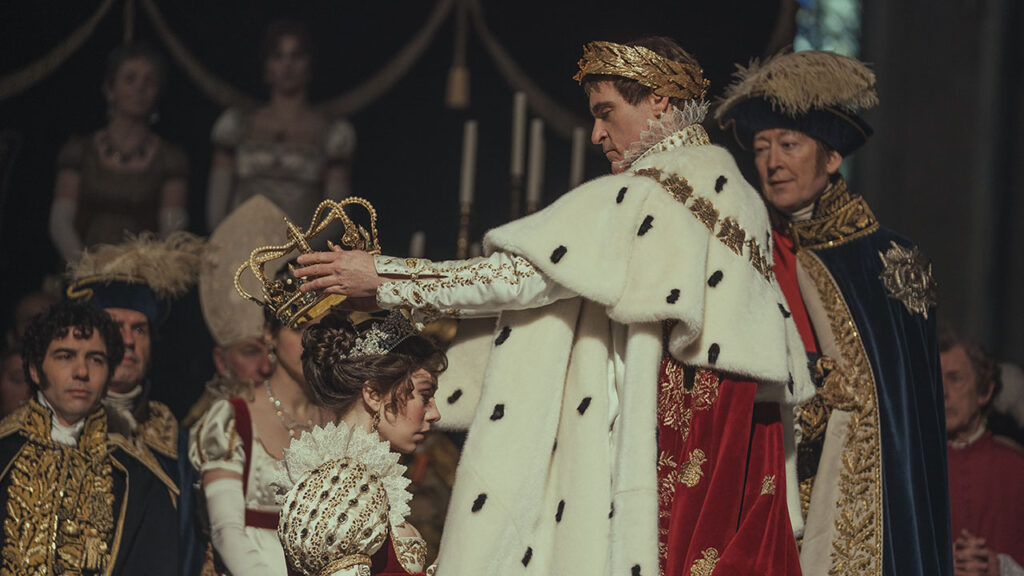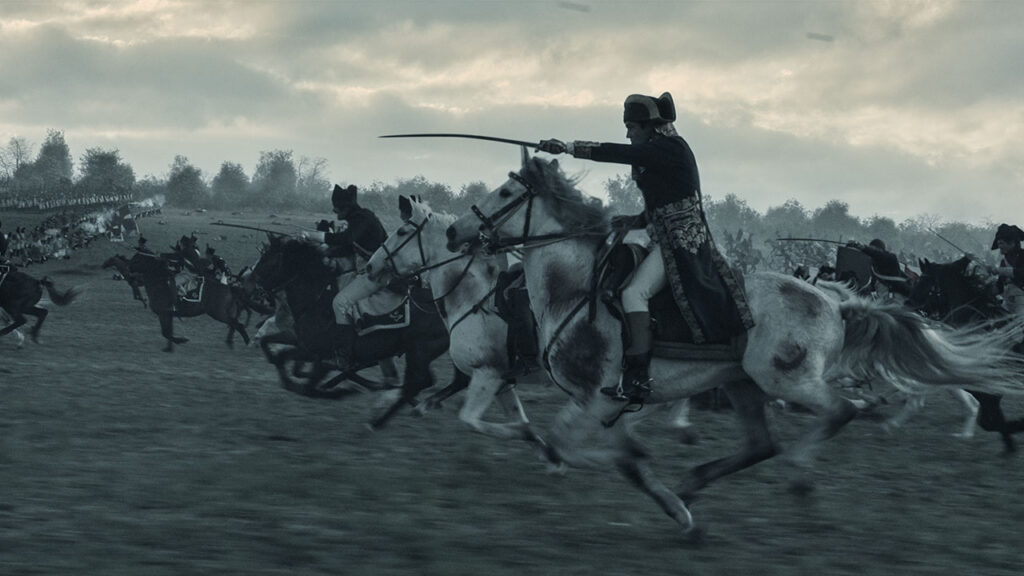That eerie silence before a battle. The unpredictability of what’s about to come. The gut-wrenching war sequences. Brutally killed horses. The iciness of death. And the acting brilliance of Joaquin Phoenix. These are sure to shudder you, and stay with you, long after you leave the cinema having watched Ridley Scott’s Napoleon. Scott retains his stature as an auteur by creating this yet another magnum opus.
Napoleon is a historic epic that details the checkered rise and fall of the iconic French emperor Napoleon Bonaparte (played by Joaquin Phoenix). The film captures Bonaparte’s relentless journey to power through the prism of his addictive, volatile relationship with his one true love, Josephine (played by Vanessa Kirby), showcasing his visionary military and political tactics, all against the backdrop of the French Revolution and the period after.
The movie, however, does not score a 10/10 in capturing Napoleon’s “relentless journey to power” as stated in the synopsis. But we’ll come to that later.
The film begins with the period when France was at the brink of revolution. One is introduced to Phoenix’s acting prowess in the very first sequence of a skirmish. Phoenix delivers the kind of performance you expect from an actor of his stature. He doesn’t play one note wrong. You can’t help but look at him in awe as he delivers an internalised performance of Napoleon Bonaparte. Even in the scenes where he is vain, it is apparent that it is Napoleon’s vanity and not his own. From fear, insecurity, love and ambition to even apathy, Phoenix portrays every emotion with precision and ingenuity.
Kirby’s performance as Josephine is bold. Josephine is shown as neurotic, fearless yet insecure, and Kirby flawlessly plays these nuances as Bonaparte’s wife.
But what Napoleon rides on through the 2:40 hours length of the film, is the epic, epic battle scenes. There are at least three battle sequences, each shot against the backdrop of a different picturesque landscape across three continents. These scenes are raw, bloody and gory, reproducing the actual chaos that would be at play in a war.
The vast barren lands in Egypt, the France and Russia of 1800s, the destruction of cities and brutal deaths – are some unforgettable shots that seem heavily aided by VFX. The visual effects for Napoleon are done by Sony Pictures Imageworks, ILM, BlueBolt, Outpost VFX, Light VFX, One of Us, The Third Floor, Argon Effects, Cheap Shot and more.
The colour palettes throughout the film are breathtaking – there is the dull grays and dull greens for battles, the dark gray and black for Russia, the reds and blues (of the national flag of France) for monarchy, palace and the France landscape, and the browns for Egypt. The action sequences and stunning costumes too deserve a special mention.
The glaring problem, however, is with the film’s writing of Napoleon Bonaparte. When a film is about a historical national hero of a country – whether it is Gandhi, Churchill or Alexander – there is an effort to show the very best of that character despite all their controversies, poor judgments, mistakes and scandals. And it is in this area where Napoleon fails.
From the first scene itself, Napoleon is shown to be an opportunistic power-hungry narcissist. He stays like that throughout the film; there is no Micheal Corleone-transition from nobody to somebody. There is no character arc, and we don’t know where his motivations emerge from. We get to see very little of Napoleon’s family. His deep love for his wife burns intensely, yet their intimate moments lack the connection one might expect, often missing the tenderness that defines true lovemaking. While we may not be aware of his equation with his wife, this contrasting portrayal of his married life is hard to believe. Even though he mentions the importance of his mother in his life, his relationship with her is barely touched, let alone explored.
The film’s screenplay moves forward in incidents and events, not in characters. The story is told in chapters like a history textbook and there are jargons that are hard to keep up with. The film does not do justice to Napoleon’s patriotism and his military acumen, focusing much more than necessary on his relationship with his wife.
Napoleon’s cinematography is certainly top-notch. But the film doesn’t quite pack the emotion of Scott’s earlier masterpieces. But in the words of director Martin Scorsese, “this is cinema” and deserves to be watched at least once.
Directed by Ridley Scott (Gladiator, Blade Runner) and written by David Scarpa, Columbia Pictures’ Napoleon is now playing in cinemas in India.



